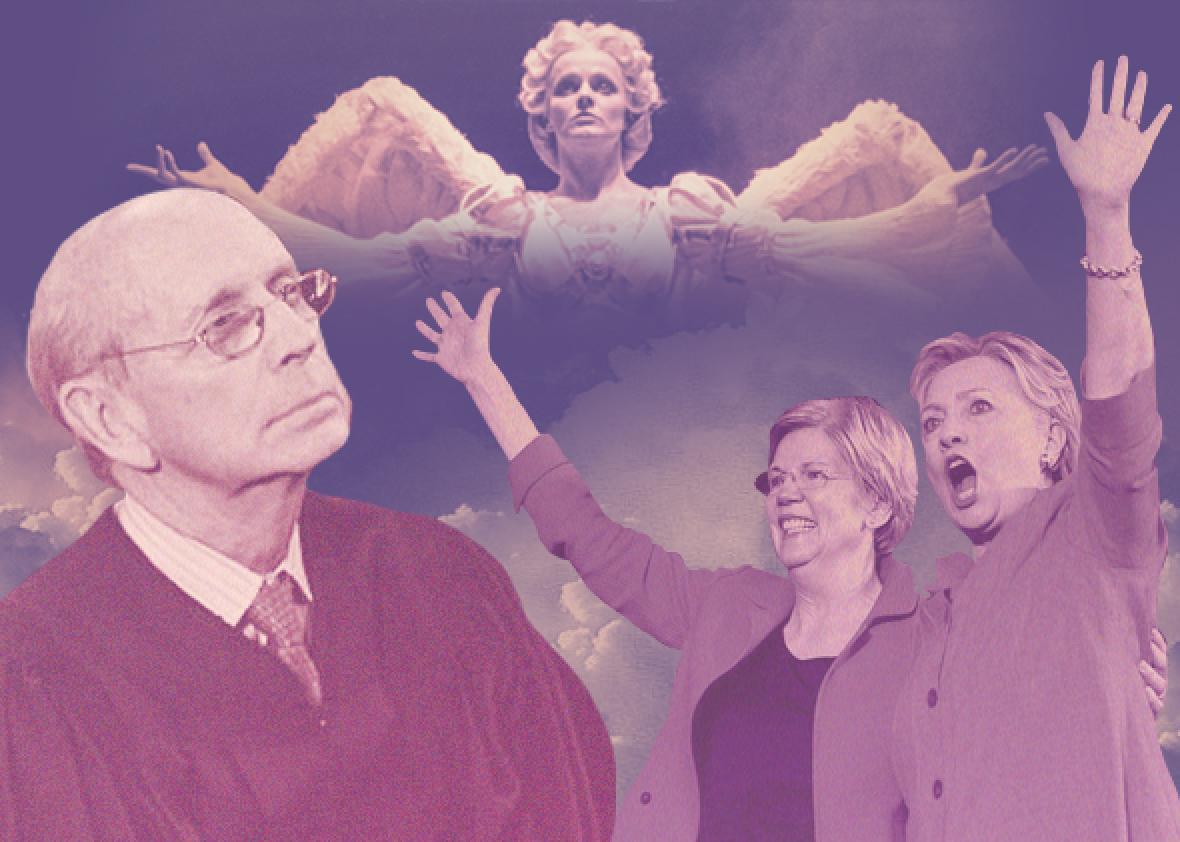Good news: As of today, we’re halfway through 2016. The less said about the first half of this ridiculous year the better. Remember: Stevie Wonder is still alive, and Canada’s economy and political system seem basically stable. And now let’s put the whole mess behind us and resolve to do better over the next six months.
We closed the latest Year of Great Books poll this morning, and the winner is … Anthony Trollope’s Barchester Towers! Grab a copy for the long weekend—or a complimentary audiobook, a gift from Audible for Slate Plus members—and read along with Laura Miller and Slate editor-in-chief Julia Turner.
And when you’re done with that:
From Slate
- This definitive oral history of Tony Kushner’s Angels in America is a juicy, compulsively readable account of the play’s composition, performance history, and cultural impact.
- Picking Elizabeth Warren for VP wouldn’t just be symbolic—it would solve a real problem for Hillary Clinton, Jim Newell argues.
- What the hell is going on at the Oakland Police Department? Let Leon Neyfakh explain.
- After violent incidents we blame mental illness, or prejudice, or radicalism. What if the real problem is anger?
- Facebook has finally revealed the philosophy behind its News Feed, and we have Will Oremus to elucidate.
- Dahlia Lithwick thinks Stephen Breyer was the perfect justice to write the Supreme Court’s landmark opinion on access to abortion.
- Pour one out for the Toast—it has been a privilege to share the internet with Nicole Cliffe and Mallory Ortberg’s creation.
Not from Slate
- We think of job insecurity as a problem for recent graduates—but the true face of the problem is older men.
- This gripping, maddening essay has so much to say about publishing today.
- Curious about Boris Johnson, the affable clown who just took down the British economy? Start with Sarah Lyall’s juicy New York Times profile.
- Also relevant: the Guardian’s heartbreaking 2014 assessment of the psychological effects of English boarding schools.
- “Though the debt is largely overlooked, Tolkien’s supreme literary achievement, The Lord of the Rings, owes a great deal to his experience at the Somme” 100 years ago.
Very Short Q-and-A
This week’s personal questions are addressed to Slate assistant interactives editor Andrew Kahn.
In addition to Slate’s assistant interactives editor, you’re a member of the New York sketch comedy group His Majesty, the Baby. Where does the name come from?
It’s from Freud’s essay “On Narcissism,” which in turn gets it from a painting of an English king. My dad really likes it because he’s a shrink.
There are a lot of comedy groups in New York. What makes His Majesty, the Baby different?
I’ve developed a vision of the group as anti-nihilist. A lot of sketch comedy is structured through escalation, and the final escalation of a sketch often reveals something very deep about the person who wrote it: what they think is the most extreme thing that can happen. Often, in sketches I see, it’s death, destruction, chaos, very often suicide. It’s great to laugh at those things, but we see them so often, and they are not, necessarily, what is fundamental, so we try to avoid treating those topics in that way. Our sketches often take left turns before the apocalypse, and we like to structure the shows in ways that suggest a philosophy or a sincerely held conviction.
Thanks, Andrew! Everyone go see HM,TB! And thank you for your Slate Plus membership, which makes our journalism possible. See you next week!
Gabriel Roth
Editorial director, Slate Plus
–
P.S. Do you remember what it was like to get your first credit card? What was your first big purchase? What was your highest balance ever, and how did you pay it down? Share your stories of debt with our newest Slate Academy series, the United States of Debt, an in-depth look at the reality of owing money in America.
Send us a voice memo at slatedebtacademy@gmail.com and we might run some of your responses in a bonus segment or upcoming episode. You can also dial (929) 279-3328 and leave a message for us there. Feel free to remain anonymous.
P.P.S. For Slate’s 20th anniversary, we still want to know what you think are the most memorable stories we’ve ever published! Email 20@slate.com.
